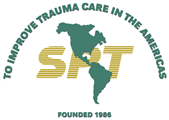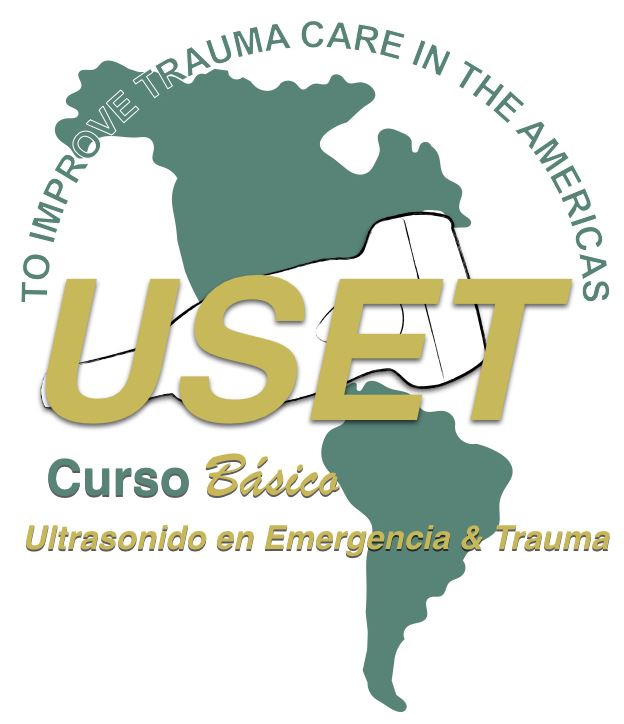

PANAMERICAN TRAUMA SOCIETY
SOCIEDAD PANAMERICANA de TRAUMA
Ultrasound in Emergency and Trauma — USET BaSIc

Description: The USET Basic workshop takes place in two separate modules. The first component involves training in the FAST sequence for emergency department staff and the second component consists of the ultrasound emergency.
The FAST module is eight hours of training focused on basic ultrasound processes to support rapid diagnosis in the emergency room, especially for trauma situations. This module focuses on analyzing particular problems and complex simulation exercises to prepare staff for real cases. It includes discussions of new uses of this versatile tool to support as a complement to the comprehensive review of trauma patients.
General Objective: The workshop ULTRASOUND IN EMERGENCY AND TRAUMA aims to train participants on emergency ultrasound management who face day-to-day patients suffering from traumatic events and medical emergencies at the hospital.
Specific Objectives:
- Determine the level of student's knowledge about the use of ultrasound in trauma and emergency and the different examination methods in the emergency room.
- Provide the necessary tools for quick and convenient ultrasound techniques in trauma patients.
- Arrange the work mindset, coordinate the use of ultrasound in the emergency room, and learn the limitations and benefits of ultrasound.
- Teach critical skills focused on assessing the patient with ultrasound trauma and emergency techniques within the emergency room, emphasizing real experiences lived by expert teachers.
Target Audience (who should attend): Trauma Surgeons, General Surgeons, Emergency Physicians, Intensivists, Anesthesiologist EMS Providers, Nurses, Residents, & Students.
Course Agenda:
Time Activity
8:00-8:30 Pre-test & Introduction
8:30-9:15 Basic Physics of Ultrasound/Transducers, Doppler, Duplex
9:15-10:00 FAST Sequence
10:00-10:15 Break
10:15-11:00 Emergency Ultrasound Applications
11:00-11:30 Emergency Vascular Evaluation
11:30-12:00 Recognition of Equipment
12:00-14:00 Lunch, Text Revision
14:00-15:30 Practice on Stations on Standard Models
15:30-17:30 Practice on Models with Intra-peritoneal Free Fluid
17:30-18:00 Evaluation and Certification
Manual is available in Spanish & Portuguese. Participants will receive the manual on the training site.
Pre-Test & Post-Test: Onsite Administration
Evaluation Form: Onsite Administration
Certificate: Onsite Administration for paid courses or E-mail Administration for payment method post-course.
Course Duration: 1 day
Course Director & Faculty: Course directors and faculty must be experts in trauma and disaster management. The director and faculty can be international or local experts. All course directors and faculty must be pre-approved.
Paula Ferrada, MD
804.316.6822
Local Coordinator: Each course must have a regional coordinator. The Course Coordinator can be local or international.
Number of Participants: Ratio of instructors to students 1:6